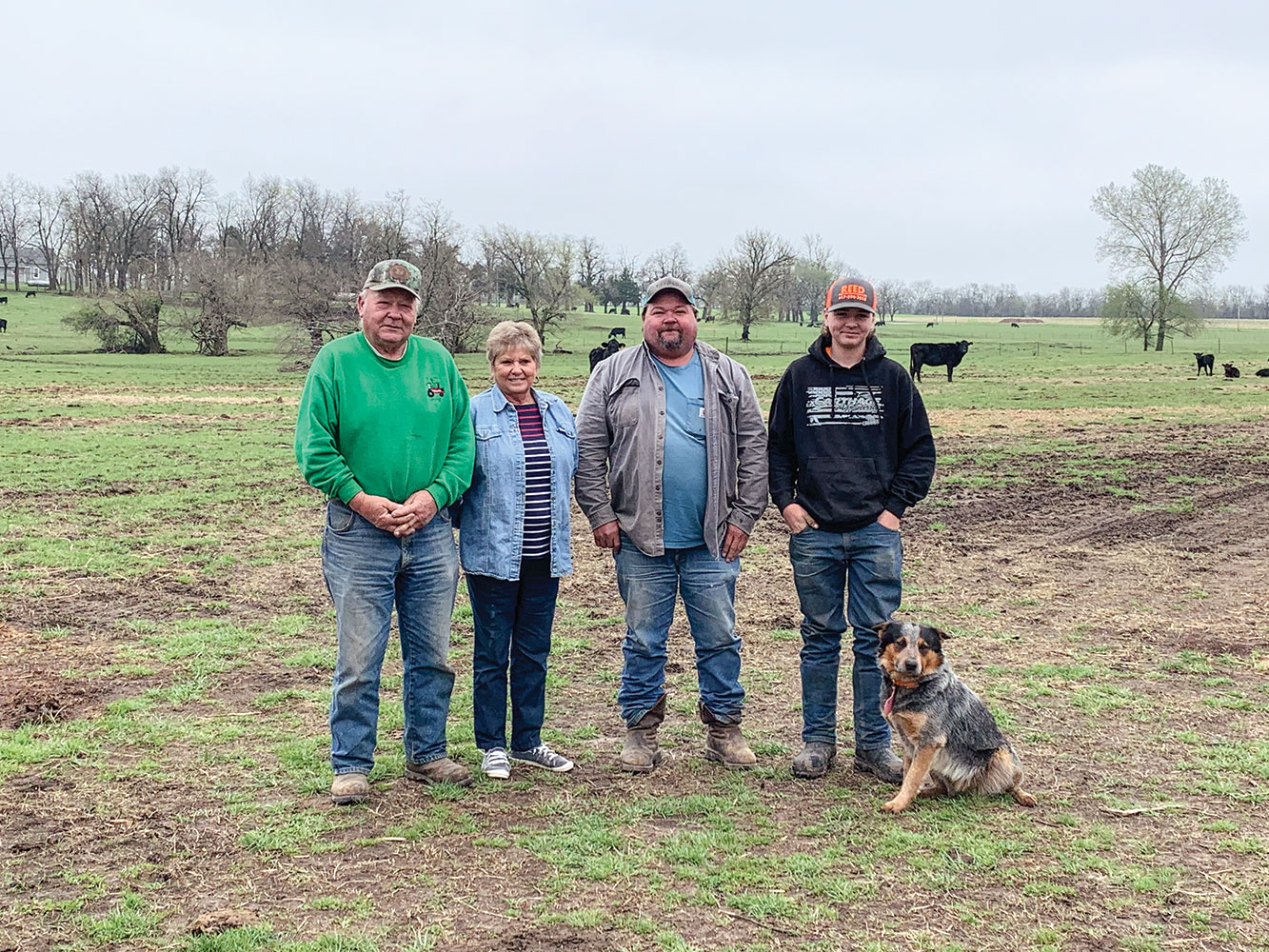
Sometimes, finding ways to market your beef is the best way to increase profits to an otherwise common beef cow/calf operation. This is what Amie’e King, daughter of Jane and Ken Prier of Eagle Rock, Mo., is working to achieve. “My dad is getting ready to retire, and I want my parents to be able to make more money from their herd by capitalizing on what they already do,” said Amie’e. “We grew up on grassfed beef, and it’s popular now with the organic craze, so why not make more money by getting certified to sell it as grassfed?”
Amie’e, who lives in Joplin, Mo., with her husband, Scott and two daughters, has done her homework and has established Prier Farms as an American Grassfed Association producer, and also has been approved by the USDA to label their beef as 100 percent grassfed. “Unless the grassfed meat you are purchasing says, 100 percent Grassfed Beef USDA approved, you can not be guaranteed that the meat is 100 percent grassfed. Meat can be labeled as grassfed if the cattle have been on grass for the first six to eight months. What people don’t realize is that the beef can then be sent to a feedlot for the last six weeks to gain weight and still be labeled as grassfed.” Amie’e continued to explain, “Our beef never leaves the farm and is fed grass until it’s butchered, that’s why it was important to label ours, 100 percent grassfed.”
Ken has always kept beef cattle on this farm, which has been in the Prier family for several generations. “I grew up here, and my brothers and I bought my grandma’s place in ‘62. It’s been in the family since the late 1800s.” Ken also said, “I’ve always had beef cattle. Dad had a dairy, and when he had a heart attack in ‘68, he went to just beef. I used to run registered Hereford, but in the mid ‘70s we switched to Limousin, and we’ve crossed them up with Angus and Brown Swiss.”
Ken continued about his breeding strategy, “I’ve done a lot of experimenting through the years, and cross-breeding is better. Crossing the Brown Swiss with the beef brings a good color and good milking ability without doing anything to the meat quality. The majority of our bulls are Limousin and Angus, but every three years I will bring a Brown Swiss bull and keep the replacement heifers. The key to good cows is milking ability.”
Choosing to establish themselves as a grassfed producer came natural, “We’ve really always done grassfed,” said Ken. Amie’e started communicating with the AGA to find out what it takes to become a registered grassfed producer, “It took several years for it to come into effect, and get the certification.” There are many aspects of the farm management that are taken into account to become established, such as fertilize type and how much is used, all cows have to be off the farm, bulls are the only livestock that can be bought into the farm from the outside, and pastures can only be sown with certain kinds of grass. Beyond that, the association specifies that hay should only be fed during drought and during grass dormancy, “You are allowed very little feed, we only use range cubes for taming heifers,” said Ken.
“When I called the AGA, I filled out an application and then they came to the farm for an inspection,” explained Amie’e. Ken said, “They checked my books, to see what kind of fertilize and feed we used. “I had to find a slaughterhouse that is USDA approved and grassfed approved,” said Amie’e. To resale meat, it must be slaughtered and packaged in a USDA facility. It was important to Amie’e to take full advantage of what they have to offer, so she went a step further, “I wanted to put ‘100 percent grassfed’ on the label, but the USDA said that was a food and drug statement and that it had to be approved for us to use that.” So, Amie’e filled out more paperwork and got that approval as well.
Prier Farms can now sell 100 percent grassfed beef that is certified by the AGA and USDA as such. They are willing to sell to individuals on the hoof or already processed. They are hoping to market their beef to whole foods grocers who specialize in organic and grassfed meats. “It is more expensive, but you are getting a better quality meat.”
“Some of our buyers have said they are very pleased they don’t have to go 500 miles to get this kind of meat.”







